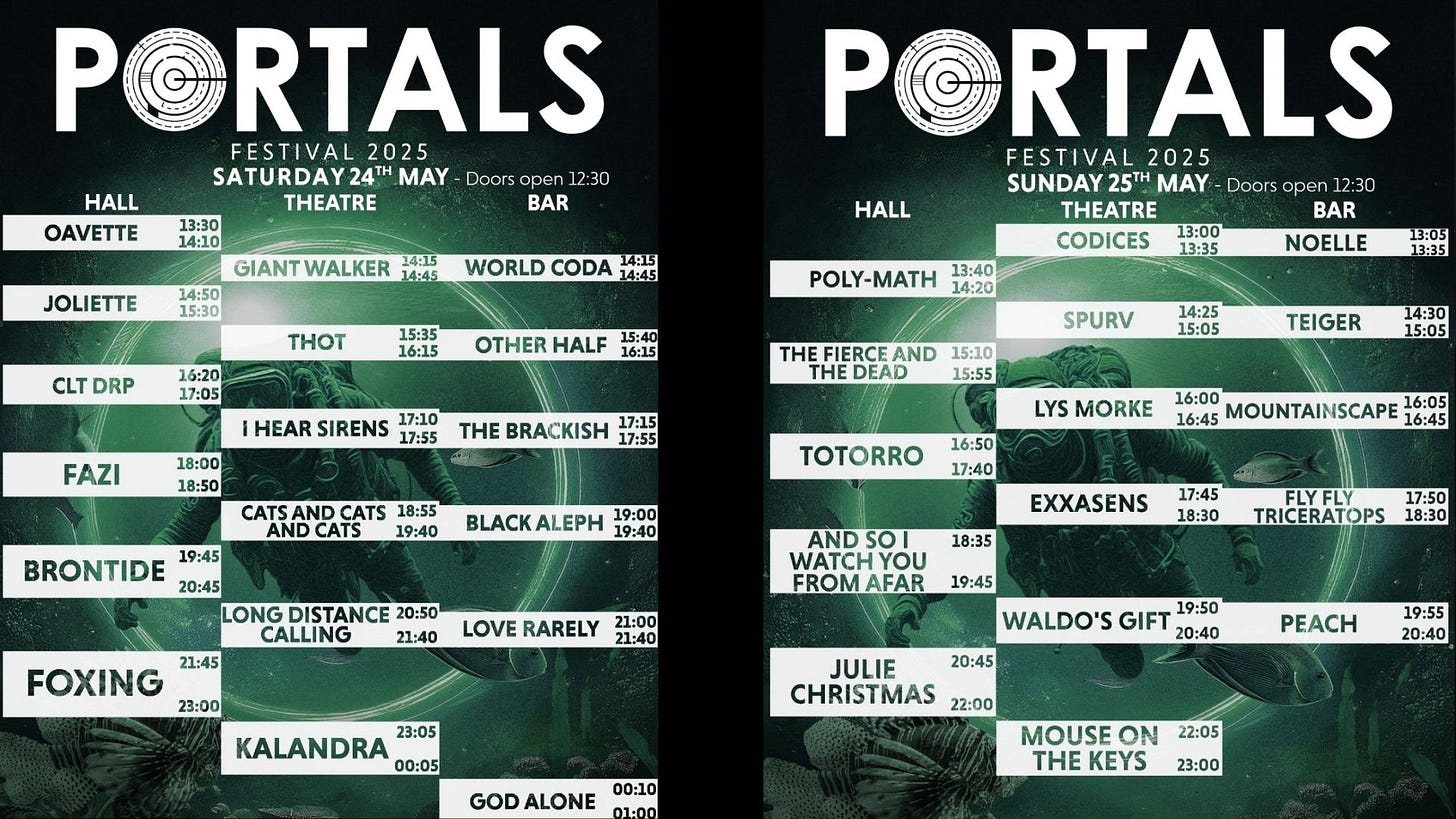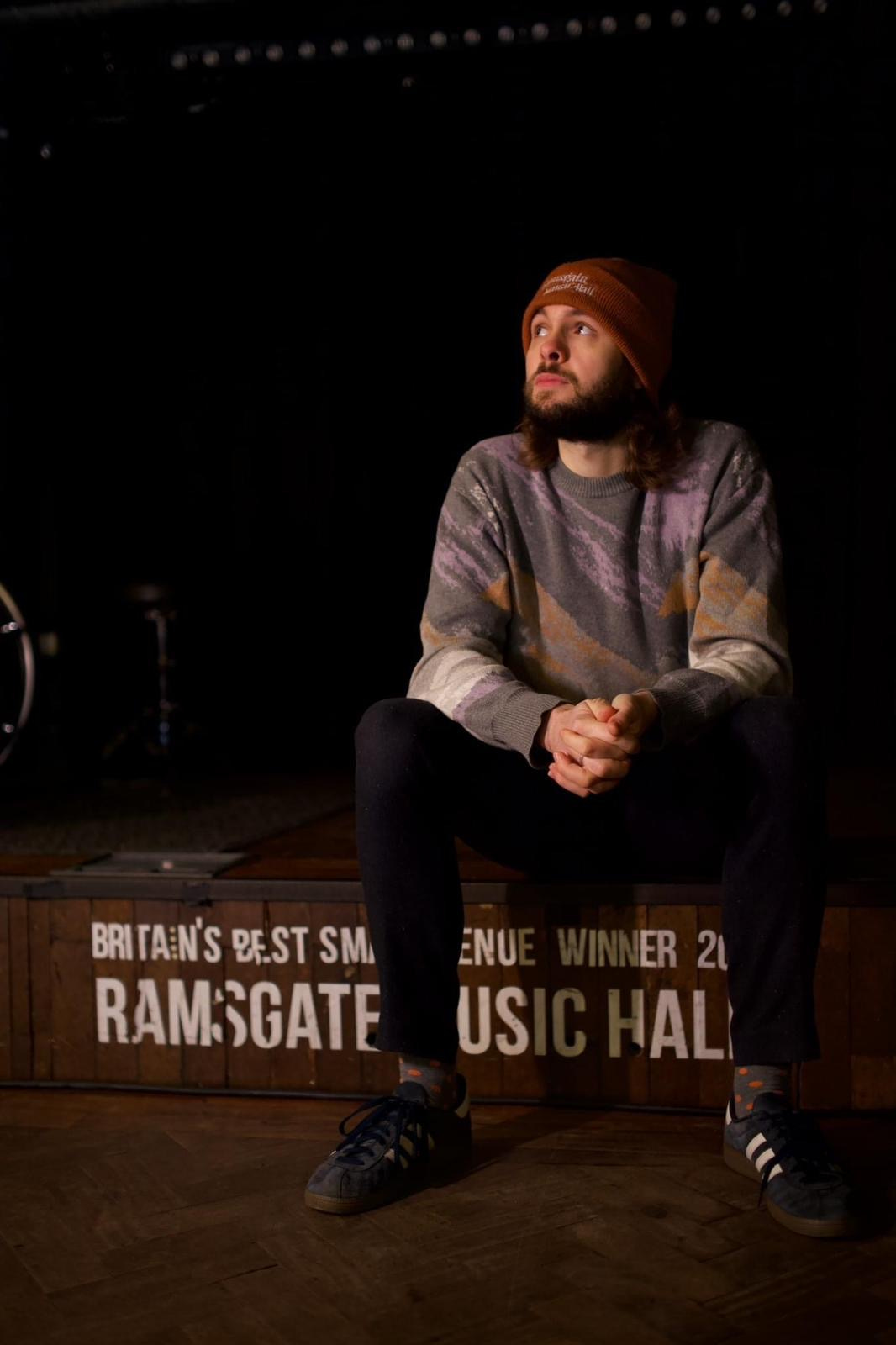Glastonbury thrives as the grassroots music scene dies
As festival goers head to Worthy Farm this week, independent live music has never been more at risk
To absolutely no one's surprise, this year’s Glastonbury festival sold out in record time. The first wave of tickets were snapped up in 40 minutes, tens of thousands of them at the eye-watering sum of £373 each (that’s roughly $500 for US readers).
But it always sells out, doesn’t it? There’s never a year where someone you know isn’t kicking themselves for losing out on the ticket ballot and swearing they’ll get lucky next time around.
By the barometer of typical Glastonbury fervour, the UK’s live music scene is in rude health.
But the festival is a cultural behemoth, one of the most famous in the world with music, events and attractions to cater to almost every taste.
It’s an outlier in an otherwise grim landscape for live music – not just in the UK, but across the world. In the UK alone, around 50 festivals were cancelled in 2024. That year Burning Man didn’t sell out, and judging from reports on the ground, Coachella was practically empty.
Things aren’t looking much better this year. The Five Percent for Festivals campaign has tracked no fewer than 35 festivals pulling the plug either this year or the next. The causes are numerous; they range from increased costs, pandemic fallout, shifting consumer patterns, and outright bankruptcy.
Portals is one of those 35 cancelled events, a London-based post and math-rock festival that has built a cult following since its 2017 launch. Organisers Sam Festenstein and Asher Kenton have succeeded in securing the absolute top of the genre over the years; This Will Destroy You, Brontide, Mono, And So I Watch You From Afar, Mouse on the Keys, and too many more to list.
But weeks out from the 2025 edition of the two-dayer, the pair announced that it would be the final festival in this iteration. They would continue to book gigs and all-dayers, but the double day festival format was no longer viable.
I sat down with the pair to find out more, wondering how a festival with such a hyper-focused curation could struggle in a capital as vibrant and music-obsessed as London.
Asher reflected on their final event, which took place at EartH in Hackney at the end of May. “It was quite emotional at times. I had quite a few people telling me how much it's meant to them over the years, and how they met new friends or discovered new bands.”
Portals 2024 was a big success, their best ever year in ticket sales. But 2025 tracked slightly lower than 2023, which Sam described as “a bit disappointing.”
He added: “The feedback [from attendees] was really positive, really lovely. In terms of the actual performances and everything, it was a success.”
The lack of sales for their 2025 event is a bit of a surprise – to many a discerning post rock fan, this might have been one of the strongest line ups they have ever put together.
A good line up doesn’t change the fact that consumers are being a lot more careful with their cash these days though, and who can blame them? It’s hard out here, and dropping money on a festival ticket, plus food, drink and transport is no longer possible for a lot of people.
It’s a point that Asher was keen to make: “The cost of us booking hotels for bands in London since we started the festival seven years ago is at least double what it was, and we've always had a lot of people coming from outside of London and abroad.
“To come down to London on a bank holiday weekend for two days, it's going to probably cost you £300 a person for a hotel room, maybe even more.”
The cost of living problem reared its head after the pandemic fizzled out, a global event that had untold repercussions for almost every industry you can think of.
“I think post-Covid, initially people were skeptical about coming out again, understandably,” Sam said. “But then after that, there was a huge excitement for a couple of years. By 2021 and 2022 people wanted to get out again.
“And since then we've seen the repercussions of prices going up, which means people have less spending money. So they're very selective about what they're going to see, and so if that nostalgia factor hits and they just want to go to one show a year, they're going to go and see a band they like rather than spend money seeing new artists.”
That nostalgia factor is a fascinating one to me. How many bands have dined out on a round number anniversary tour in the past half decade? You can’t move these days for a ‘20th anniversary tour of specific classic album’ gig, or a festival line up that resembles an NME splash from the mid-noughties.
Andre Dack echoes this sentiment. Former manager of Kent’s Ramsgate Music Hall, Andre has booked some incredible acts at the small venue over the years; Stereolab, IDLES, Shabazz Palaces, Self Esteem, Damo Suzuki, and Xiu Xiu to name but a few.
“Nostalgia is a hell of a drug, and it's not a risky one either,” he said.
“I was in my teenage years in the noughties. I know Bloc Party is starting to do some shows around one of their early albums. That takes me right back to when I was at school, and it sparks something in your brain and makes you want to instinctively get that ticket, because it brings you back to your youth.
“I'm not surprised at all that that's a valuable tool people are using to try and sell shows, and it's so important now to sell those tickets because the current ecosystem for live music is entirely screwed.”
By my count, Bloc Party are playing headline slots for seven UK festivals this summer, all performances of 2005’s Silent Alarm. I’m no hater, it’s a great record, but this is some serious nostalgia booking coming into play.
Yet, as Andre puts it, how can you blame promoters and festival organisers? If you’re having to focus on the bottom line to keep your festival or venue running, you need punters through the door. If that’s legacy acts and established bands playing an anniversary slot, then so be it I guess.
On the flipside, what space is left for people to discover the headliners of tomorrow, the fringe bands struggling to find an audience amidst the algorithms of social media platforms and AI-curated streaming playlists?
The harsh struggles of running a small venue took their toll on Andre, who has since decided to move onto pastures new. His passion for music is unmistakable – I’ve known him for eight years, and his knowledge runs deep enough to challenge even the most devoted music obsessives reading this newsletter.
It’s a sad indictment of the UK’s live music landscape when someone with that kind of drive feels so ground down they abandon their dream of putting on great shows.
Andre reeled off the myriad problems in store for any grassroots venue manager: “Rent goes up, rates go up, energy bills are frightening – honestly, we had a 300% increase two years ago. Nothing was ever the same since that massive increase.
“VAT in this country for venues and promoters is at 20% – that's the highest of all the major music markets. All of these things just make it just fucking impossible.
“There's a reason why I stepped away. The whole system is absolutely broken – too many venues have closed, too many promoters have stopped putting on shows, and more will stop in the next 12 to 24 months.”
On a slightly more positive note, Andre pointed out the forces for good trying to right the wrongs of the UK’s flailing live music scene. “I will say people are trying to fix it. People acknowledged these problems years ago, and were making a song and dance and trying to fight about it then.”
One of those forces for good is the Music Venue Trust (MVT), a UK charity with a mission to protect and improve the health of grassroots music venues across the British Isles. In the past the MVT has raised hundreds of thousands of pounds to help secure the future of venues struggling to keep the lights on.
More than 200 venues reached out to the charity for support in 2024 – that’s almost a quarter of the entire live music sector in the UK.
To find out what more can be done, I sat down for a chat with Sophie Asquith, Venue Support Team Manager at the MVT.
“The climate has never been more challenging,” Sophie admitted. “Costs have exploded, the profit margin has always not really been a profit margin – you can’t really call 0.48% a profit margin. It’s as close to zero as you’d wish to be.
“Advance ticket sales are definitely down, lots of venues are reporting that. We’re seeing less confidence for venue operators to be able to make the finances work.”
Realistically, structural change is the only way to improve the prospects of grassroots live music moving forward. Without government intervention, it’s not difficult to imagine a point where many of the most loved small venues only exist in the memories of gig goers. In the UK, we have 20% taxation on cultural tickets, which is one of the highest in the world. In other words, it is more expensive to put on shows in the UK than most other places, where taxation is between 5-15%.
The next big idea, aside from pressuring the government to look at reducing that abnormally-large taxation, is an industry-wide levy.
A levy would effectively mean that each time an arena and stadium ticket was sold, a small percentage of the cash would go towards grassroots music. The MVT is pushing hard to make this a reality, and it’s a call Sophie said the government has already recognised.
“Ideally we’d want a voluntary blanket levy” she said, “so £1 on every stadium and arena show above 5,500 capacity. Companies and individuals involved would know it’s voluntary in that it exists as a decision controlled by the industry, i.e. not mandated by government, but it’s blanket in that it’s absolutely considered the norm. It’s not a charitable donation just to be seen to be doing once and then forget about it for the next stadium tour.”
The recently announced run of Gorillaz shows at the Copper Box Arena in London included the £1 levy on all tickets, in the hope that other operators will begin to follow suit.
Other artists have also pledged some proceeds from their UK ticket sales to support the initiative, from Pulp, to Diana Ross and Hans Zimmer.
If the big promoters and venue owners want a steady stream of artists to fill seats in the future, then the £1 levy is a way of helping to secure that for the health of the entire live music scene.
According to the MVT, just 8% of the 5.5 million stadium and arena tickets sold in the UK included a contribution to grassroots music.
Andre appreciates the effect a ticket levy could have, but is skeptical about the speed and scale with which it can happen.
“It needs to be every big show,” he said. “It just has to be because there's so much money in live music, more than people would ever actually imagine. But I think you know where it goes.”
Any guesses, dear reader? Yes, well done. Live Nation.
Speaking to IQ Magazine last month, the UK’s Culture Minister, Chris Bryant, said: “Are there people who could do a bit more? I think Live Nation might want to step up a bit more. They’re a very, very big player in this world…”
He’s right, too.
Live Nation has a monopoly-like grip on the world’s live music industry. When it merged with Ticketmaster in 2010, it succeeded in creating its own ecosystem where it was able to set pricing, exert leverage wherever it wanted, and effectively become the gatekeeper of music events everywhere.
There’s also the grim situation of its dynamic pricing model, which had Oasis fans paying hundreds of pounds for a single stadium seat on their looming reunion tour. Tickets advertised at £148.50 ended up at £355.20 by the time punters hit the checkouts.
The bosses at Live Nation have already verbally committed to playing their part in the voluntary-but-blanket ticket levy, which is a step in the right direction. But it remains to be seen when it will actually happen.
For now, at least, independent and grassroots venues and festivals continue to dwindle, and the places tailor-made to showcase up and coming bands will keeping vanishing.










Keen to hear from any of who you have noticed your independent live scenes collapsing - especially if you’re not UK based
Reporting from Boston, US. Independent music here is in quite rough shape with the cost of rent here ballooning massively over the past couple decades. Dingy rehearsal spaces and basement venues are being redeveloped into various other commercial ventures and high end apartments. The once legendary scene that gave birth to Aerosmith, The Cars, Boston (the band), and Pixies is still grinding in the underground but its not like it was.